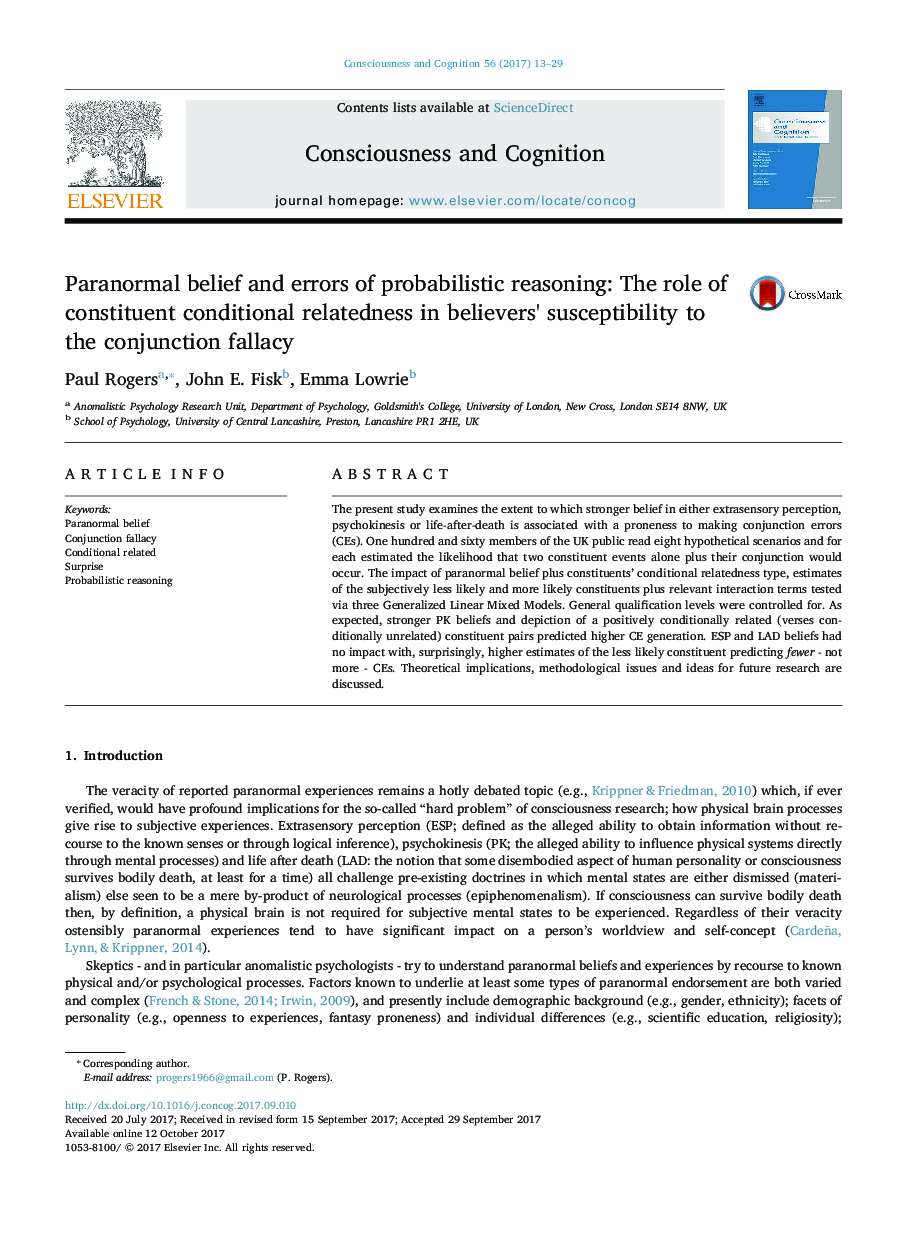| Article ID | Journal | Published Year | Pages | File Type |
|---|---|---|---|---|
| 5041700 | Consciousness and Cognition | 2017 | 17 Pages |
â¢Belief in psychokinesis predicted more conjunction errors (CEs).â¢Belief in extrasensory perception and life after death did not predict CEs.â¢More CEs were made for conditionally related (verses unrelated) constituent events.â¢Higher estimates of the more surprising constituent predicted fewer CEs.â¢Generally less qualified individuals also made more CEs.
The present study examines the extent to which stronger belief in either extrasensory perception, psychokinesis or life-after-death is associated with a proneness to making conjunction errors (CEs). One hundred and sixty members of the UK public read eight hypothetical scenarios and for each estimated the likelihood that two constituent events alone plus their conjunction would occur. The impact of paranormal belief plus constituents' conditional relatedness type, estimates of the subjectively less likely and more likely constituents plus relevant interaction terms tested via three Generalized Linear Mixed Models. General qualification levels were controlled for. As expected, stronger PK beliefs and depiction of a positively conditionally related (verses conditionally unrelated) constituent pairs predicted higher CE generation. ESP and LAD beliefs had no impact with, surprisingly, higher estimates of the less likely constituent predicting fewer - not more - CEs. Theoretical implications, methodological issues and ideas for future research are discussed.
